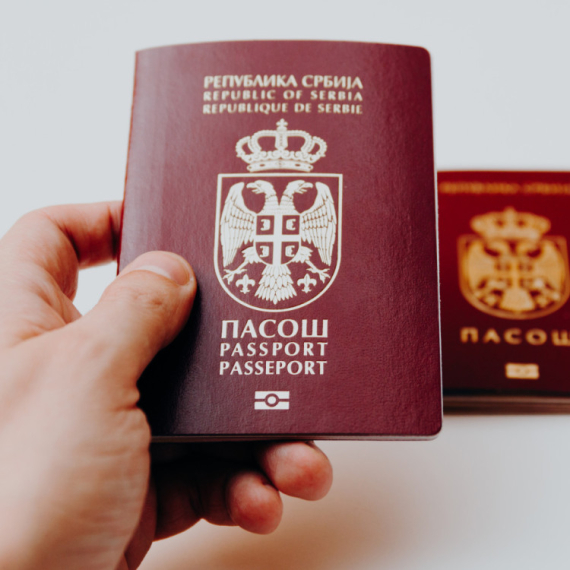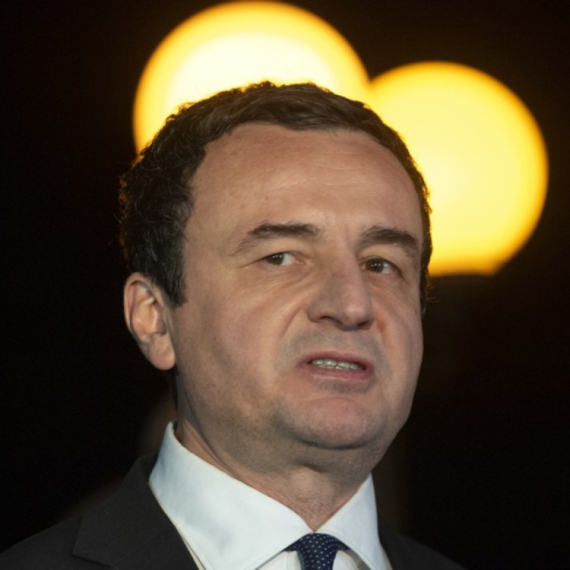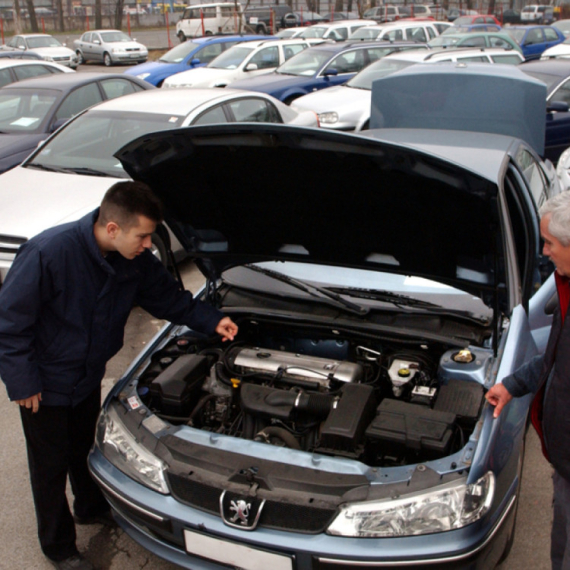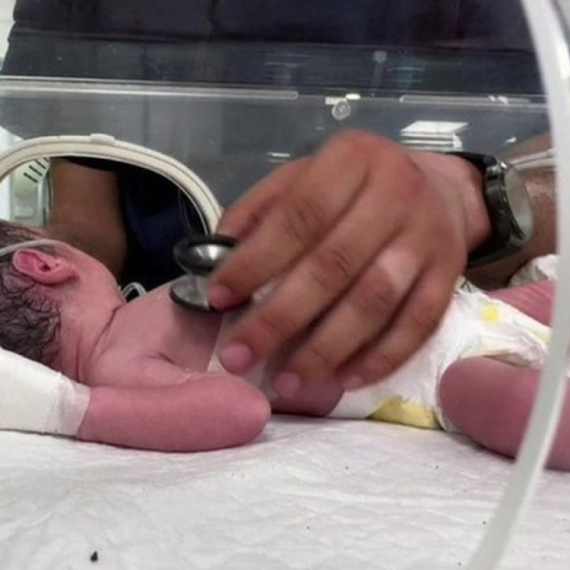Dačić addresses Drug Enforcement Conference in Moscow
The Balkan drug route, through which heroin from Afghanistan is taken to Western Europe markets, has recently spread, Ivica Dačić has said.
Wednesday, 05.06.2013.
10:22

MOSCOW The Balkan drug route, through which heroin from Afghanistan is taken to Western Europe markets, has recently spread, Ivica Dacic has said. He explained that this concerned "Kosovo, Bosnia-Herzegovina, Macedonia, Bulgaria and Romania." Dacic addresses Drug Enforcement Conference in Moscow Giving a speech at the 30th Annual International Drug Enforcement Conference (IDEC) held in Moscow, the Serbian prime minister and interior minister said that the seizure of drugs in the territory of Serbia has reduced, which could be explained by the spreading of the Balkan route, which is also used for trafficking cocaine. The Albanian criminal groups make up a significant part of the European drug cartels, which international services data clearly shows, Dacic said. He pointed out that that the majority of the organized crime groups in Serbia are involved in drug trafficking, as Serbia's geographical position makes it the shortest route for heroin from Afghanistan to reach the Western Europe markets. An efficient fight against drug trafficking calls for the establishment of joint investigative teams at the international level, said Dacic. Serbia is searching "all over the world" for the suspects in a case of cocaine smuggling from South Africa - Darko Saric and Rodoljub Radulovic - and the country is cooperating with international services on that, the Serbian prime minister also told the conference. When asked whether Serbia is looking for Saric, Radulovic or anyone from the so-called Saric gang in Russia, Dacic said: "We are searching for them across the world. So, we are certainly looking for them in Russia. It would not make any sense to tell you anything more. Thus, we were talking that we were looking for Saric in South Africa, which was a clear message to him to flee South Africa.“ Asked what the Serbian government had done to prevent the smuggling of heroin from Afghanistan through Kosovo, Dacic said that the government "cannot do much" because under the provisions of UN Security Council Resolution 1244, the Serbian police is not present in Kosovo and Metohija. He added that the EU and UN missions there, EULEX and UNMIK, are "under obligation" to cut the drug smuggling routes. Dacic then stressed that "Russian, British, German, and American services are aware" that the so-called Albanian Mafia holds an important place among European narco-mafias, and pointed out that Naser Kelmendi was "not the only one hiding from justice in the territory of Kosovo." Asked why Serbia failed to arrest Kelmendi - an ethnic Albanian from Kosovo who holds the passport of Bosnia-Herzegovina - Dacic said the suspect was not a citizen of Serbia, and that he was hiding in Kosovo "probably counting on not being extradited, especially to the countries that do not recognize Kosovo." The conference in Moscow today in organized by the Federal Drug Control Service (FSKN) of the Russian Federation and the Drug Enforcement Agency (DEA) of the United States. The gathering brought together officials from over 100 countries, and Russian President Vladimir Putin is also attending. The opening addresses were delivered by FSKN Director Viktor Ivanov, DEA Director Michele Leonhart and United Nations Office on Drugs and Crime (UNODC) Executive Director Yury Fedotov. (Beta/AP) Beta Tanjug
Dačić addresses Drug Enforcement Conference in Moscow
Giving a speech at the 30th Annual International Drug Enforcement Conference (IDEC) held in Moscow, the Serbian prime minister and interior minister said that the seizure of drugs in the territory of Serbia has reduced, which could be explained by the spreading of the Balkan route, which is also used for trafficking cocaine.The Albanian criminal groups make up a significant part of the European drug cartels, which international services data clearly shows, Dačić said.
He pointed out that that the majority of the organized crime groups in Serbia are involved in drug trafficking, as Serbia's geographical position makes it the shortest route for heroin from Afghanistan to reach the Western Europe markets.
An efficient fight against drug trafficking calls for the establishment of joint investigative teams at the international level, said Dačić.
Serbia is searching "all over the world" for the suspects in a case of cocaine smuggling from South Africa - Darko Šarić and Rodoljub Radulović - and the country is cooperating with international services on that, the Serbian prime minister also told the conference.
When asked whether Serbia is looking for Šarić, Radulović or anyone from the so-called Šarić gang in Russia, Dačić said:
"We are searching for them across the world. So, we are certainly looking for them in Russia. It would not make any sense to tell you anything more. Thus, we were talking that we were looking for Šarić in South Africa, which was a clear message to him to flee South Africa.“
Asked what the Serbian government had done to prevent the smuggling of heroin from Afghanistan through Kosovo, Dačić said that the government "cannot do much" because under the provisions of UN Security Council Resolution 1244, the Serbian police is not present in Kosovo and Metohija.
He added that the EU and UN missions there, EULEX and UNMIK, are "under obligation" to cut the drug smuggling routes.
Dačić then stressed that "Russian, British, German, and American services are aware" that the so-called Albanian Mafia holds an important place among European narco-mafias, and pointed out that Naser Kelmendi was "not the only one hiding from justice in the territory of Kosovo."
Asked why Serbia failed to arrest Kelmendi - an ethnic Albanian from Kosovo who holds the passport of Bosnia-Herzegovina - Dačić said the suspect was not a citizen of Serbia, and that he was hiding in Kosovo "probably counting on not being extradited, especially to the countries that do not recognize Kosovo."
The conference in Moscow today in organized by the Federal Drug Control Service (FSKN) of the Russian Federation and the Drug Enforcement Agency (DEA) of the United States.
The gathering brought together officials from over 100 countries, and Russian President Vladimir Putin is also attending.
The opening addresses were delivered by FSKN Director Viktor Ivanov, DEA Director Michele Leonhart and United Nations Office on Drugs and Crime (UNODC) Executive Director Yury Fedotov.



















































Komentari 2
Pogledaj komentare